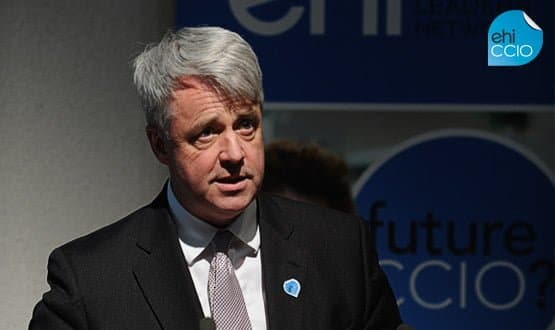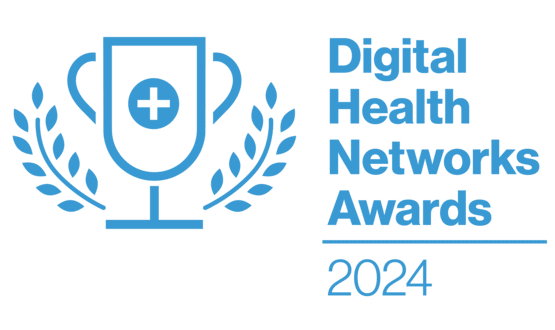Leaders from the front
- 9 March 2012

As he launched the EHI CCIO Leaders Network, health secretary Andrew Lansley said it was part of a profound shift in decision making in the NHS.
In the future, he said, clinicians would lead change in the health service, and be able to “reap the benefits of the explosion in information and technology that is re-shaping the world beyond the NHS.”
There was just as much enthusiasm for the CCIO role among the 100 people packed into the launch event at the Royal College of Physicians in London. Yet some of the would-be CCIOs in the audience had a simple question: how would they make the job work?
Informal conversations concentrated on such mundane – but vital – topics as: Who should they be accountable to? Would they need a budget to be powerful enough?
Is CCIO a role that really only has value for the individual, ambitious doctor working in a trust undertaking a major electronic patient record project? Or is it open to other clinicians interested in broader change management projects?
And is there a CCIO role within clinical commissioning groups? Although the last question will be one for debate on the new EHI CCIO Leaders Network pages, panellists at the launch event were able to shed light on at least some of the others.
EPR projects essential?
Kim Ashall, the de facto CCIO at The Rotherham NHS Foundation Trust, and Paul Altman, CCIO at Oxford University Hospitals NHS Foundation Trust, are both leading on the implementation of new electronic patient record systems.
The systems in question are Meditech at Rotherham and Cerner Millennium in Oxford and Ashall and Dr Altmann were clear that the deployments were central to their role.
“A CCIO needs to oversee a sensible and logically deployed EPR,” said Dr Altmann. “They need to start delivering clear clinical and business benefits early and show that the EPR will improve safety, not reduce it.”
However, it is worth pointing out that several of the other CCIOs identified by eHealth Insider are not overseeing EPR implementations.
Tigger-like enthusiasm
There were other common messages about the CCIO role. Both Dr Altmann and Ashall agreed that it is essential to have the full backing of the chief executive.
Ashall whose formal title is director of service transformation and IT – reports directly to her chief executive, Brian James – but will soon report to the new medical director.
Dr Altman, meanwhile, works under a programme board chaired by his chief executive. “CCIOs must have the support of the executive,” he said. And a wider panel discussion agreed.
Asked by EHI editor Jon Hoeksma whether CCIO should report to the chief executive, the medical director, or the IT director, panel members joked they should report to whoever had the money – because they had the power.
Both Ashall and Dr Altmann also agreed that a a major part of their role was persuading, encouraging and cajoling. “Having someone who is Tigger like and not short on enthusiasm is helpful,” Dr Altmann said.
Both also talked about their role as interpreter between the IT department and clinicians. Where they differed was in their view of how much IT knowledge the needed to do this.
Ashall, for example, presented herself as the IT novice, there to make sure that the IT department spoke in plain English.
“If I can’t understand what is being said, then what chance do the 5,000 people behind me have?” she asked. For her, IT was one tool in her service transformation tool box.
And she cheerfully admitted to cribbing information from websites as she struggled to get an understanding of IT jargon and standards.
“The focus of the IT department is on the interface and not so much about how we get our end users to use the darned thing,” she said. “My focus is on the patients and the customers [i.e. the people who use the system in the trust].”
Dr Altmann disagreed. “You need solution expertise,” he said. “I think it is important to have a lot of knowledge about the system you are trying to persuade people to use.”
Back on the panel, Dr Joe McDonald, national clinical lead for IT (mental health) at the Department of Health Informatics Directorate, agreed with Dr Altmann.
“I think the more you know the better. I know how much I knew when I came into this role four years ago and how much I know now and I am much better for knowing more,” he said.
Dr Rhidian Bramley, CCIO at The Christie Hospital, added: “I am a software developer. Would I also be a CCIO if I was not a developer? Probably not.”
To practise or not to practise?
Another question addressed by the panel of experts was whether a CCIO needs to be a practising clinician.
The evidence from the US is that the role is best filled by senior clinician who either comes out of a clinical role to do the job or who maintains a clinical role while acting as CCIO part-time.
Ashall does not fit that role – although she is a physiotherapist, she admitted it had been “sometime since I wore pink trousers.” Her more recent experience has been in service transformation, in which she holds an advanced degree.
“It does not appear to matter that I am not a practising clinician,” she said. Dr Bramley agreed. “You don’t need to be a practising doctor if you are as inspirational as Kim,” he said; prompting her to joke that she had paid him to say this.
However, Julie Tindale, national clinical lead for nursing and midwifery at the Department of Health Informatics Directorate, felt the same.
“When I came into this role that appeared to be the case,” she said. “Now I have come to understand that it is the clinical background that matters.”
Even so, Tindale pointed out there was a dearth of other professionals with the requisite skills. “There are not many nurses here today, and that’s because there are not many informatics experts in nursing. But there are plenty of nurses using information.”
CCIOs in CCGs?
The question on which the panel drew a blank was whether there is a CCIO role for clinical commissioning groups. A GP from the audience pointed out: “What we do in primary care is quite different – and the remit as a commissioner will be different again.”
Dr Phil Koczan, CCIO at UCL Partners, is now working on what a CCIO role in CCGs might encompass. Is this where the CCIO role becomes more of a chief clinical informatics officer role? It’s an area that will need exploring.
You join or start a discussion about any of these matters – or ones that interest you – on our dedicated CCIO Group.




